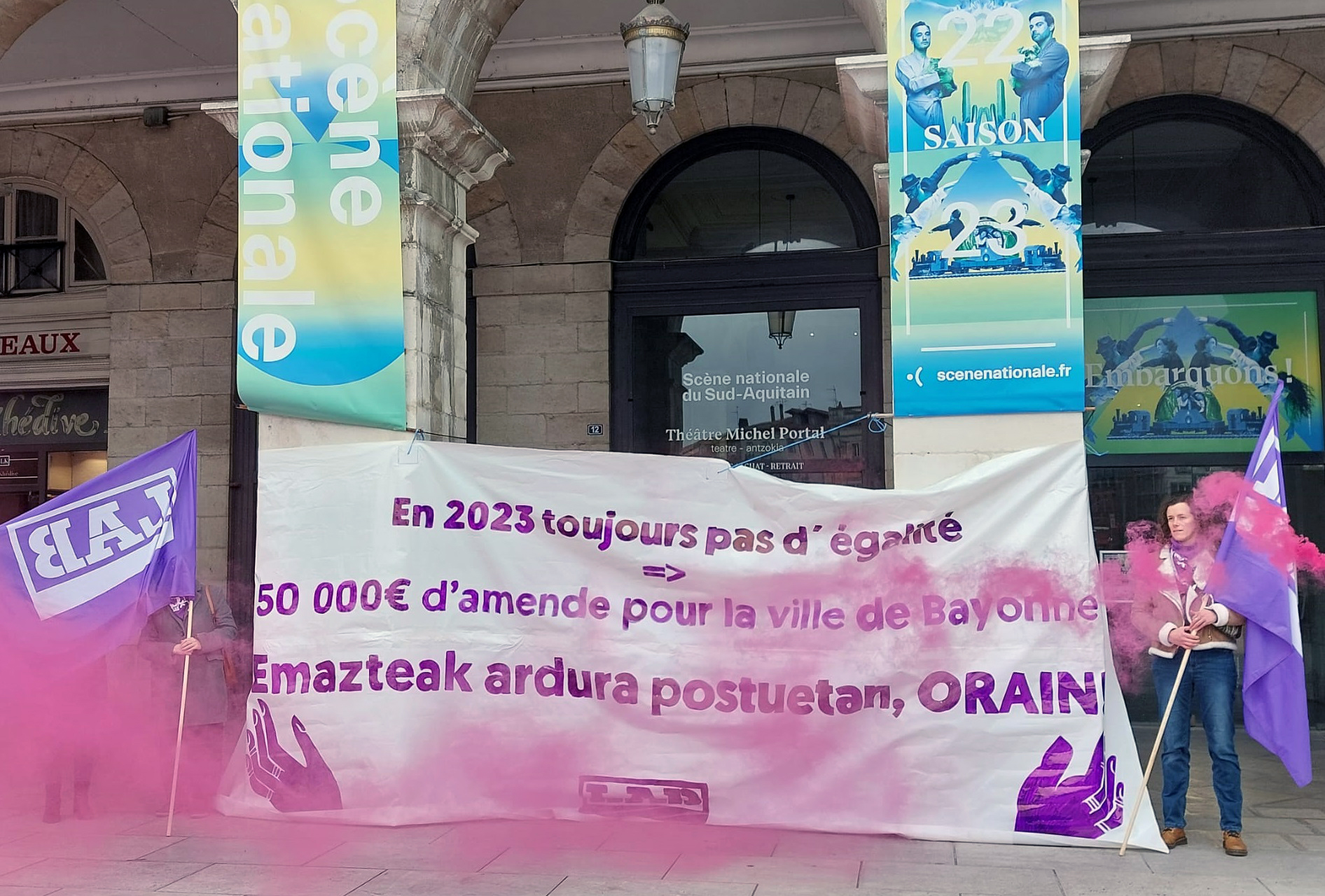For me
The great ideas and reports of the progress that characterized modernity have been in crisis for years. Instead, the reports without such close links gained strength, and the collective subject was dominated by the individual. In reality, however, this exchange between the individual and the superiority of the collective narrative is very old, that is, that this conflict has already occurred before. However, since the 1990s (and we should take into account the fall of the Soviet Union, the military superiority of the United States, the increase in the crisis of the so-called welfare state, etc.) It seemed that modernity was lagging behind and that a new time was beginning, although there was no consensus on naming the new stage and limiting its characteristics: advanced modernity, late modernity, postmodernity, etc.
I believe that this trend is not so clear in the last ten years. After the great economic crisis that began in 2008, which seems to be turning into the books of history under the name of Great Recession, modern authors returned to the front line in the realm of political thought. That's at least if we focus on book sales. In any case, along with these general structural tendencies, I believe there is no doubt that individual speeches have gained strength in the public debate, and that behind there are political objectives. Because, just as structural changes require a general theoretical framework, daily practice is also essential not to be limited to the practice of general slogans, and therefore becomes a fundamental exchange between them.
The ability of public administrations to define reality and disseminate the discourses and concepts that become protagonists of society makes them play a prominent role in this whole issue. I would like to say that in the same way that governments and institutions can promote policies and stories that prioritize the collective dimension, they can also limit reality to individual practices and responsibilities. I have always found it very clarifying, and paradoxical, how in workers’ strikes the right to work is claimed from administrations that should defend the interests of the majority, when and only in those contexts of strike, promoting an individualistic reading. Unfortunately, there are many examples in that direction.
Well, I think this choice is booming in the context of the pandemic. The health emergency associated with COVID-19, the risk of getting sick, the limits imposed on social life… are making weights and you notice fatigue anywhere. It will surely be difficult to do otherwise. But in a general context that leads to individual logic, in which “I, for me and for me” can be the motto, I believe that from the political power there is a fundamental role that puts the force in the opposite direction: in concrete practices and in the reports that prioritize and care for the collective level.
Fortunately, at the local level, above all, there are examples of this kind in our country. From the community care initiatives promoted by certain municipalities, to the intense and varied performance of social movements. An isolated and selfish man, dreamed of neoliberalism, who is not possible in the real world, and it is raised time and again that the human being is a social being, even in this erroneous pandemic context.
Bidali zure iritzi artikuluak iritzia@argia.eus helbide elektronikora
ARGIAk ez du zertan bat etorri artikuluen edukiarekin. Idatzien gehienezko luzera 4.500 karakterekoa da (espazioak barne). Idazkera aldetik gutxieneko zuzentasun bat beharrezkoa da: batetik, ARGIAk ezin du hartu zuzenketa sakona egiteko lanik; bestetik, egitekotan edukia nahi gabe aldatzeko arriskua dago. ARGIAk azaleko zuzenketak edo moldaketak egingo dizkie artikuluei, behar izanez gero.
Otsailean bost urte bete dira Iruña-Veleiako epaiketatik, baina oraindik hainbat pasarte ezezagunak dira.
11 urteko gurutze-bidea. Arabako Foru Aldundiak (AFA) kereila jarri zuenetik epaiketa burutzera 11 urte luze pasa ziren. Luzatzen den justizia ez dela justizia, dio... [+]
MAITE: (biharko eguna antolatzen bere buruaren baitan) Jaiki, gosaldu, bazkaria prestatu, arropa garbitu, etxea garbitu, gizon hori jaiki, seme-alabak jaiki, hiru horien gosaria prestatu, haiek agurtu, erosketak egin, lanera joan, seme-alabak eskolatik jaso, merienda eman,... [+]
Matxismoa normalizatzen ari da, eskuin muturreko alderdien nahiz sare sozialetako pertsonaien eskutik, ideia matxistak zabaltzen eta egonkortzen ari baitira gizarte osoan. Egoera larria da, eta are larriagoa izan daiteke, ideia zein jarrera matxistei eta erreakzionarioei ateak... [+]
“Kasu, ez gitxu lo!”. Gure denbora eta manerekin baina heldu gira.
Azaroaren 25ean Baionako elgarretaratzera joan ez joan eta autoak nola partekatu pentsatzetik (joan-jina bi oren), bat-batean Lartzabalen elgarretaratze bat antolatu genuen, eta 47 emazte bildu!... [+]
Nahiz eta Nazio Batuen Erakundeak (NBE) 1977an nazioarteko egun bat bezala deklaratu zuen eta haren jatorriaren hipotesi ezberdinak diren, Martxoaren 8aren iturria berez emazte langileen mugimenduari lotua da.
Aurrekoan, ustezko ezkertiar bati entzun nion esaten Euskal Herrian dagoeneko populazioaren %20 atzerritarra zela. Eta horrek euskal nortasuna, hizkuntza eta kultura arriskuan jartzen zituela. Azpimarratzen zuen migrazio masifikatua zela arazoa, masifikazioak zailtzen baitu... [+]
Ez dut beti ulertzen nola aritzen ahal diren lur planeta honetako zati okitu, zuri, gizakoi eta kapitalistako aho zabal mediatikoak, beraiena, hots, gurea, zibilizazioa dela espantuka. Berriak irakurtzen baldin baditugu, alta, aise ohartuko gara, jendetasuna baino, barbaria dela... [+]
Administrazioko hainbat gai, LGTBI+ kolektiboko kideen beharrizanak, segurtasun subjektiboa, klima aldaketa, gentrifikazioa, ikus-entzunezkoak erabiltzeko modu berriak, audientzia-datuak jasotzeko moduak, dislexia, ikuspegi pedagogiko aktibo eta irisgarriak, literatur... [+]
Auzitan jar ez daitekeen baieztapen orokor eta eztabaidaezinaren gisan saldu digute hizkuntzak jakitea printzipioz ona dela, baina baditu bere "ñabardurak", edo esanahi ezkutuagokoak. Hemengo ustezko elebitasun kontzeptuaren azpian dagoen baina kamuflatzen den... [+]
Otzandu egin gara, katalanak eta euskaldunok, ekaitzaren ondoren. Saiatu ginen, bai; sendo ekin genion, eta gogor kolpatu gaituzte; ezin izan genien gure helburu zuzen, ezinbesteko, sakratuei eutsi. Eta porrotaren mingostasuna dastatu dugu, eta bigundu egin gara irabazleen... [+]
Iragana ulertzen saiatzen eta etorkizuna bideratzen, oraina joaten zaigu zenbaiti. Nire proiektuetako bat (hasi baina landu ez dudana oraindik) dudan zuhaitz genealogikoa egitea da. Horretan lagunduko didan liburutxo bat ere erosi nuen. Baina, hain da handia lana, liburutxoa... [+]
Desgaitasun fisikoa duen arkitekto baten alabaren etxea bisitatu ondoren idazten dut honako hau.
Desgaitasun fisikoa duten pertsonen taldeek ez dute arkitektoa maite, beraien bizitza zailtzen duen gaizkile bat kontsideratzen baitute. Gorrotoa ulerkorra da: arkitektoaren lanak... [+]
Ortutik itzuli berritan erabaki nuen Twitterretik alde egitea, oraindik Twitter zenean. Auzolan batera joan nintzen, brokoliak eta azaloreak landatzera, eta mindfulness efektua zapuztu zidan algoritmoak, idazle feminista transgorrotatzaile baten txioak jaurtitzearekin... [+]
Martxoaren 8a hurbiltzen ari zaigu, eta urtero bezala, instituzioek haien diskurtsoak berdintasun politika eta feminismoz josten dituzte, eta enpresek borroka egun hau “emazteen egunera” murrizten dute, emakumeei bideratutako merkatu estereotipatu oso bati bidea... [+]




















